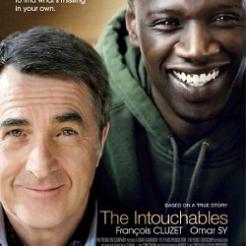Robert Ashton calls for life to imitate fiction as he critiques the relationship of the film Untouchable with real-world service provision.
Have you seen 'Untouchable' yet? It's a great film and a true story with some very strong messages for everyone with an interest in health and social care. The story's about Phillipe Pozzo de Borgo, a wealthy Parisian quadriplegic, and what happened when he hired an ex-offender to be his carer.
The film opens with his PA interviewing potential carers. All are qualified, competent and it seems, numbingly dull. Phillipe is clearly disabled, but equally determined not to be treated like a geriatric patient. He yearns for the excitement he lost when a hang glider accident deprived him of his mobility.
Driss, the carer he chooses to hire doesn't want the job. He asks repeatedly for the signature he needs to claim his benefits payments. He's been in prison, does drugs and comes from a dysfunctional family. But he takes the job and everything goes amazingly well.
What makes the difference is the carer’s attitude to his client. He forgets that he cannot hold a mobile phone, passes it over when it rings, then apologises and holds it to his client's ear. He discards the wheelchair-accessible car and instead, man-handles Phillipe into the Maserati he thought he'd never ride in again. They even go hang gliding together.
The difference Philippe says, is that this guy does not pity him, but instead treats him as an equal. He focuses on making things happen, not explaining why things cannot. He has attitude; the right attitude, no doubt as a result of his chequered past.
So what's the message for us? Well although the story is true, if this service was being funded Philippe would not be allowed to hire Driss. He'd fail a CRB check, has no qualifications and no experience. He'd remain on benefits himself and Phillipe would receive the boring but compliant support the authorities believe he needs.
Across the UK we have people with attitude like Driss. Ex-offenders I have met tell me that they stand no change of getting jobs because nobody will take the perceived risk of giving them an opportunity to prove themselves. Yet millions of pounds are invested in trying to help them into the job market.
Social enterprise can so easily form the bridge between vulnerability and unemployment and work. But the biggest barrier to success is not in my view the people looking for that second chance, but the bureaucrats. People who commission the services are innately risk averse and so these opportunities are lost.
How can we show people that given the chance, the untouchables in our society actually have much to offer?









